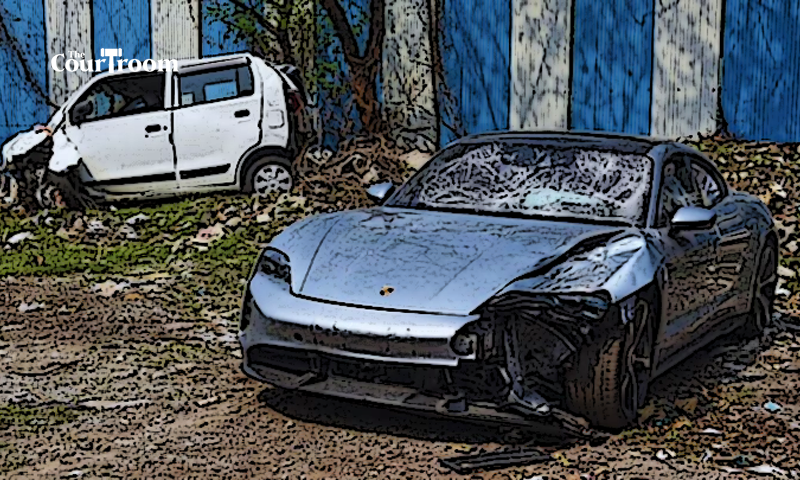The Pune Porsche case has spotlighted significant loopholes in India’s legal framework, particularly concerning juvenile offenders and road accident fatalities. This article delves into the systemic issues and the urgent need for legal reforms to address such incidents effectively.
Section 304A and Its Implications
Section 304A of the Indian Penal Code (IPC) is a bailable offence, allowing most accused individuals to obtain bail. In India, road accidents and the resulting fatalities are alarmingly common. A 2022 government report revealed that 4,61,312 road accidents were reported by states and union territories, resulting in 1,68,491 deaths and 4,43,366 injuries. The number of road accidents in 2022 increased by 11.9 percent compared to 2021.
The Pune Porsche Case and Public Outrage
The recent Pune Porsche case has sparked nationwide outrage. On May 19, a luxury Porsche car driven by a minor killed two individuals. The case drew attention due to the minor’s alleged intoxication, his affluent background, and the involvement of a luxury vehicle. The Juvenile Justice Board granted bail to the minor, imposing conditions such as writing an essay on road safety and assisting the Traffic Police for 15 days. The Board also directed the minor’s parents to ensure he avoids future offences, undergoes counselling, and quits drinking. However, the Juvenile Justice Board later cancelled the bail and remanded him to an observation home until June 5.
Legal Framework and Challenges
The minor was charged under Section 304A of the IPC, which covers “death by negligence” and is bailable. Consequently, courts cannot refuse bail, and accused individuals often secure bail through bonds at police stations. Given the accused’s age (17 years and eight months), he will likely be tried as a minor under the Juvenile Justice (Care and Protection of Children) Act of 2015 (JJ Act).
Responsibility Under the Motor Vehicles Act
When a minor is involved in a road accident, the Motor Vehicles Act of 1988 holds the guardian or vehicle owner responsible. The minor faces fines and penalties, with a maximum punishment of three years, a fine of Rs 25,000, and cancellation of the vehicle’s registration.
Accused’s Background and Legal Proceedings
The accused, son of a prominent builder in Pune, allegedly lost control of his Porsche while intoxicated, killing two individuals on a motorcycle. The father has also been charged under Sections 75 and 77 of the Juvenile Justice Act for willful neglect and supplying intoxicating substances to a minor. A court in Pune has remanded him to police custody for two days.
Juvenile Justice Act and Trial Process
The JJ Act outlines a process for determining whether a minor can be tried as an adult in the Pune Porsche Case. The Juvenile Justice Board conducts a preliminary assessment for minors aged 16 to 18 accused of heinous offences. This assessment, to be completed within three months, evaluates the minor’s mental and physical capacity and understanding of the consequences. If tried as an adult, the case is transferred to the Children’s Court, which considers the child’s age and potential for reform. If found guilty, the minor may be sent to a place of safety until age 21, after which they may be transferred to an adult prison.
Selective Outrage and Legal Reform
Public outrage arose from the minor’s release on bail within 15 hours of detention for causing a fatal accident. The leniency of Section 304A, which prescribes a maximum punishment of three years, highlights the flaws in the legal framework. Despite stricter penalties proposed under the Bharatiya Nyaya Sanhita (BNS), such as up to 10 years of imprisonment and fines up to Rs seven lakh for negligent driving, public protests forced the government to retract.
The Underlying Issue
The core issue lies in the legal framework and its implementation. Despite numerous laws, enforcement remains inconsistent. Minors frequently access alcohol and cigarettes, yet checks-and-balances only become stringent following public outcry.
The Pune Porsche case underscores the urgent need to address the legal loopholes in our justice system. Stricter laws and consistent enforcement are essential to prevent such tragic incidents and ensure justice for victims.
Share your news, articles, deals, columns, or press releases with us! Click the link to submit and join our platform today.


